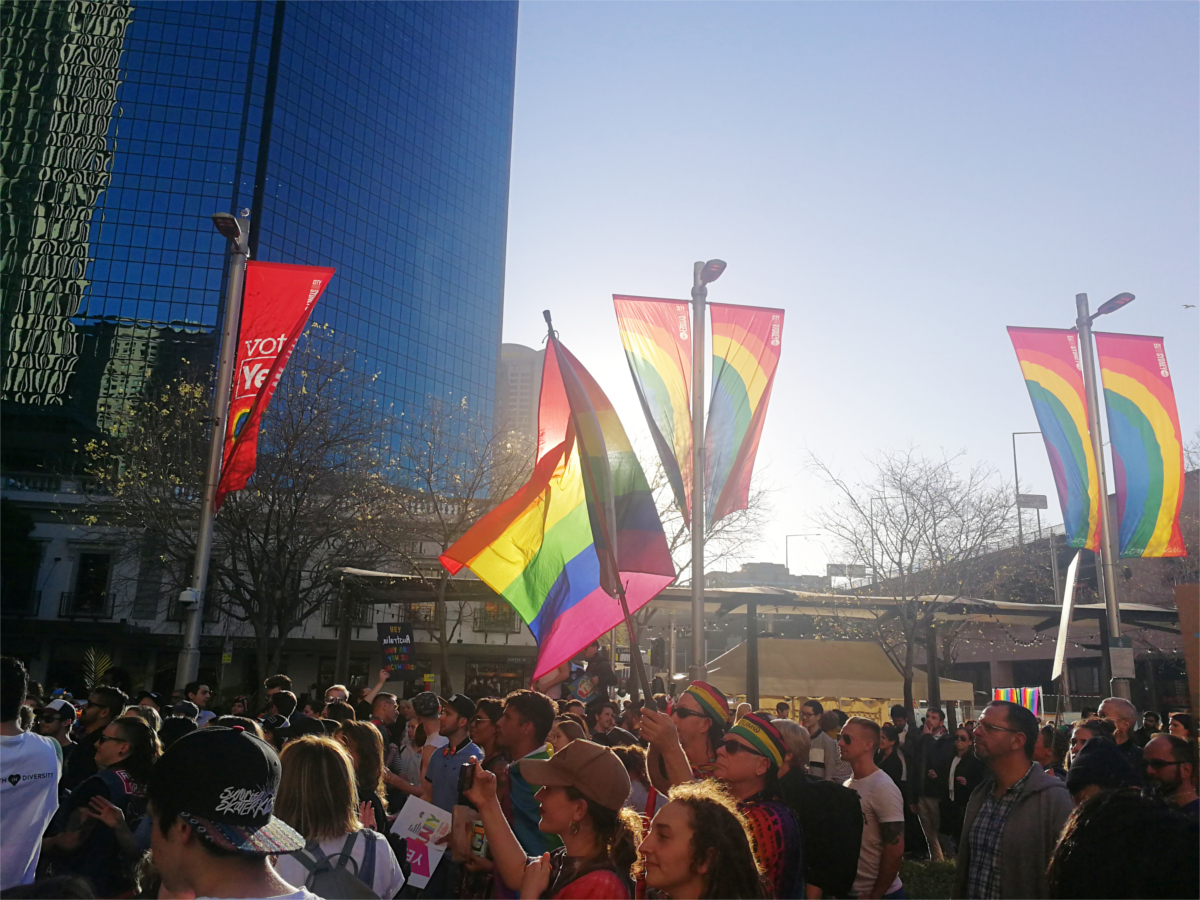Sydney Morning Herald shared revelations that only two-thirds of voters will likely take part in the survey, causing a stir for yes campaigners. And some campaigners are pointing to the Brexit vote and the election of Donald Trump as a possible ‘history repeating’ moment. But I want you to know that on the whole, it means nothing. Even if 80% of the votes come back in favour, it does not mean we will get marriage equality by Christmas. And even if it’s 50-50 or 40-60, it does not mean marriage equality will be dead until the next election. Of course, a 70-80% in-favour result does sound better than a 50-50 result, but do not think of it as the final verdict. And let me tell you why.
Firstly, it’s noncompulsory. You will not get a fine if you forget to hand it in or if you purposefully throw it in the bin. You can create a paper plane and throw it at your next door neighbour’s house if you so wish to. But they could unfold it and vote for you, which will be considered a valid vote if you do not report it missing to the Australian Bureau of Statistics.
Secondly, it’s nonbinding. Even if the vote goes through as 80-20 to the yes vote, the federal parliament is not bound to go ahead with a free vote. Sure, Prime Minister Malcolm Turnbull said he would, but there is nothing binding him to do it. And even if it comes back 40-60, it does not mean the issue of marriage equality will be swept under the rug until the next election. For evidence, another marriage equality rally is being held on October 21 at Hyde Park. Not to mention Labor’s staunch position on the subject. Opposition Leader Bill Shorten even said if the result came back underwhelming he would still legislate for it.
And speaking of Trump and Brexit, those issues do not compare to marriage equality. The election between Donald Trump and Hillary Clinton had a strong political divide. Nobody wanted a president who spoke ill of women, Mexicans and disabled people. And nobody wanted another Clinton family in the White House, who likely had links to Russians (oh the irony of that right now). But people did want a president who was famous, while others wanted a president who had political experience. As for Brexit, well… a lot of people probably saw this as a way for Britain to become more independent, while the other side preferred the economic safety net. My guess is most of them probably didn’t care about it, just as much as they didn’t understand it.
But these do not compare to marriage equality. For one, this issue is a social issue. We are not having a survey between two equally horrible choices. We are having a survey on social acceptance. If we look into how the past polls on social justice issues have gone, it’s actually rather promising.
Consider the 1967 referendum. Okay, it’s not about sexuality or gender, but it is about social justice. Australia voted, and indigenous people became citizens to the land down under overnight. Most of us looked at the indigenous community and thought how little it impacts us if they became citizens. Or even consider Ireland’s referendum on same sex marriage. It was 62-38 to the yes vote, and it was groundbreaking for a country that is stringently Catholic. In Australia, Atheism is the strongest religion. So there is one issue, at least, that we can be little less worried about.
But in the end, this postal survey means nothing. Unless every single voting member of the public marked their answer, it means nothing. And even if everyone does, it still means nothing. It will not stop marriage equality advocates from protesting in the future and it will not mean marriage equality will definitely become a reality before the next election.
But it can. And that’s why you should treat it like gold.
A vote for “no” will keep the LGBTI community fighting longer, and a vote for “yes” could make us stop sooner. A vote for “no” may cause a questioning teenager to take their own life, but a vote for “yes” could give them hope. A vote for “no” could mean this debate will continue, and a vote for “yes” will put it to rest.
And remember: This is not a vote for religious liberties, or a vote for what happens in schools, or a vote for what happens to children. Members of clergy will still have the religious right to refuse service to particular groups of people. What happens in schools will still be determined by the proper governing bodies. Same sex couples can still have children and adopt them. Nothing in those areas will change. And for those who are worried about traditional marriage being dramatically changed, here is a video for you:
Ultimately, this is a vote for what happens between two consenting adults. That’s the be all and end all. The whole crux of the matter.
I know this, because the question will be: “Should the law be changed to allow same sex couples to marry?” And that is all.
So if you do not want to prolong the matter, please vote “yes”. I do not want to have to waste more of my energy in persuading people why I should have the right to marry. And I am sure you dont want this either.


